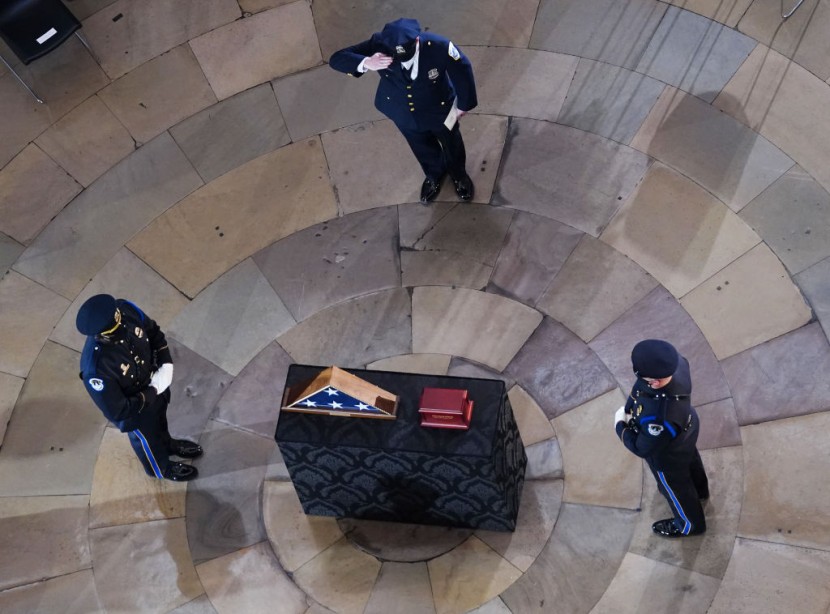The medical examiner's office in Washington, DC, ruled Monday that Capitol Police Officer Brian Sicknick, who passed away after confronting rioters during the January 6 insurgency, suffered a stroke and died of natural causes. The ruling reduced the likelihood that someone would be convicted of his murder.
Capitol officer Brian Sicknick died due to a stroke

According to two sources familiar with the situation, investigators initially believed the officer was struck in the head with a fire extinguisher based on statements taken early in the inquiry. Brian Sicknick, 42, was later suspected of ingesting a chemical substance, presumably bear spray, which may have led to his death.
However, a natural cause of death suggested that the medical examiner determined that his death was caused solely by a medical condition and not by an injury. Federal prosecutors' right to file murder charges in Sicknick's death is expected to be severely limited due to the ruling, AP News via MSN reported.
7-Year-Old Girl Dies, Father Severely Injured in Chicago McDonald's Drive-Thru Shooting
The U.S. Capitol Police confirmed the medical examiner's results. Still, the verdict did not change the fact that Sicknick died in the line of service, courageously protecting Congress and the Capitol. Two men have been charged with using bear spray on Brian Sicknick after the riot on January 6. The arrests of George Tanios, 39, of Morgantown, West Virginia, and Julian Khater, 32, of Pennsylvania, brought federal authorities closer to finding and using those involved in the five deaths that occurred before and during the riot.
The two men's lawyers did not respond to a request for comment on Monday. Sicknick died after protecting the Capitol from a crowd storming the building as Congress voted to certify Joe Biden's democratic victory over Donald Trump.
As the crowd gathered at the Capitol, Sicknick and other officers watched behind metal bicycle racks. Authorities said Khater was seen while standing just 5-8 feet away from the officers, with his arm in the air and the canister in his hand as rioters started pulling on one of the racks. Sicknick was the fifth person in history to have been laid in honor at the Capitol Rotunda. The place is reserved for people who are not elected officials, judges, or military leaders. He was laid to rest at the Arlington National Cemetery.
At Least 8 People Dead Including Suspect in Massive Shooting at Indianapolis FedEx Facility
Brian Sicknick died from a stroke after the Capitol siege
The day after Brian Sicknick's death, former acting Attorney General Jeffrey Rosen said the officer died due to the injuries he sustained protecting the United States Capitol against the violent mob that stormed it. He said that the Justice Department did not waste any time investigating and keeping tabs on those responsible, as per Washington Examiner.
The term "natural" is used when a disease alone causes death. According to the medical examiner's office, if an injury hastens demise, the manner of death is not considered natural. Of Sicknick dying naturally of a stroke, the office also said that an unprecedented incident of civil insurgency at the United States Capitol resulted in the deaths of five individuals, including Sicknick.
Francisco Diaz, the chief medical examiner for Washington, DC, told the Washington Post that he found no signs of Sicknick having an allergic reaction to a chemical spray or other external or internal injuries.
He noted that "all that happened played a part in his condition." The chief medical examiner claimed Sicknick had two strokes at the base of the brainstem due to an artery clot. But the outlet said he did not speculate about whether Sicknick had a preexisting medical condition due to privacy policies.
At Least 25 Injured After House Party Floor Collapses Near University of Georgia
© 2026 HNGN, All rights reserved. Do not reproduce without permission.








